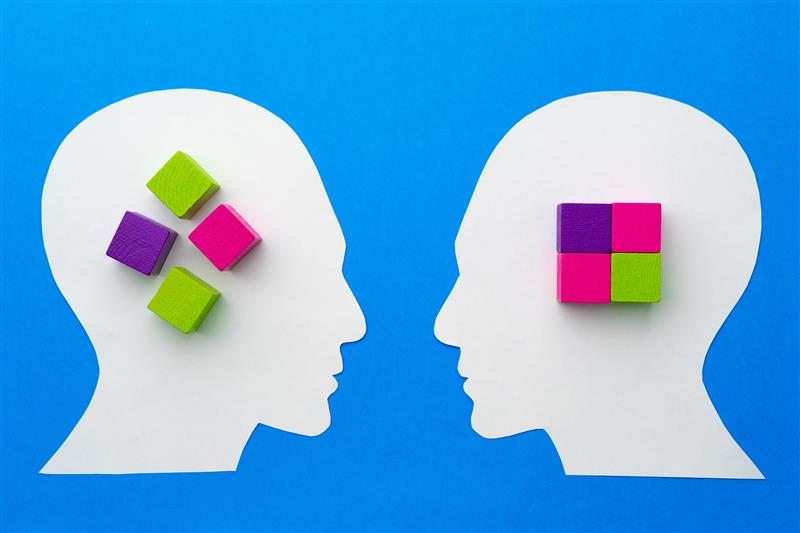
Image Source: Envato
In our fast-paced world, conversations often revolve around productivity, success, and measurable outcomes. Yet, one of the simplest and most transformative human acts remains underrated—sharing knowledge. When people share knowledge, they do more than exchange information; they create space for healing, connection, and growth. This process not only benefits the receiver but also nurtures the giver, making it one of the most overlooked forms of emotional and psychological healing.
Knowledge Sharing as Emotional Release
Holding onto unspoken experiences, lessons, or insights can feel heavy. Sharing knowledge lightens that weight. For example, when someone talks about overcoming anxiety or hardship, the act itself offers relief. Speaking aloud transforms personal struggle into shared wisdom.
This exchange helps individuals:
- Reduce feelings of isolation
- Gain validation from others
- Transform pain into purpose
By putting their experiences into words, people reclaim power over their stories, which sparks both personal healing and collective resilience.
The Healing Ripple Effect in Communities
Communities thrive when members support one another, and sharing knowledge builds bridges. When individuals exchange insights, they not only provide practical help but also emotional encouragement. Consider support groups for grief, addiction, or chronic illness. These groups center on knowledge sharing, where one person’s experience becomes another’s guidepost.
Healing grows stronger when it spreads. A community that values shared wisdom can break cycles of silence, reduce stigma, and empower its members to seek solutions.
Why Shared Knowledge Strengthens Mental Health
Mental health struggles often carry stigma. Talking openly about them and sharing knowledge about coping strategies or professional resources helps normalize these conversations, making them more approachable and accessible. For many, learning that others have faced similar struggles can help reduce feelings of shame and boost confidence.
Knowledge sharing for mental health provides:
- New coping tools from real-life experiences
- Encouragement to seek professional help
- Hope that recovery and balance are possible
Through this process, knowledge evolves into healing energy, supporting emotional stability for both giver and receiver.
How Sharing Knowledge Rebuilds Self-Worth
People often underestimate the value of their lived experiences. Sharing knowledge reminds individuals that their challenges and achievements matter. This act reinforces self-worth because:
- It validates personal experiences: Struggles gain meaning when they help others.
- It builds confidence: Offering useful insights shows individuals they have something valuable to give.
- It creates legacy: Knowledge shared becomes part of someone else’s healing journey.
This transformation—from silent struggle to meaningful contribution—restores dignity and purpose.
Sharing Knowledge in Professional Spaces
In workplaces, sharing knowledge improves more than productivity. It fosters psychological safety, reduces stress, and builds a supportive culture. Mentorship, peer learning, and collaborative problem-solving serve as vehicles for healing.
For instance, an employee who shares a new method to reduce burnout might not only help colleagues but also reinforce their own healing from similar struggles. Professional environments that prioritize knowledge sharing nurture both innovation and emotional well-being.
The Science Behind Healing Through Sharing
Research in psychology supports the healing effects of sharing knowledge. Studies highlight that:
- Expressive writing and speaking reduce stress: Translating thoughts into words provides clarity and lowers anxiety.
- Altruism boosts well-being: Helping others, even through knowledge, releases feel-good hormones like oxytocin.
- Social support fosters resilience: Shared experiences strengthen the sense of belonging, a key factor in mental health.
Science validates what communities have long practiced: sharing knowledge is medicine for the mind and spirit.
Storytelling: The Oldest Form of Healing Knowledge
Long before modern therapies, storytelling served as humanity’s way to heal. Ancient cultures passed down wisdom, lessons, and traditions to guide communities. This tradition demonstrates that sharing knowledge is a profoundly human and inherently healing act.
Storytelling remains powerful today. Whether through books, blogs, podcasts, or casual conversations, sharing stories continues to help people process emotions, gain perspective, and inspire hope.
Practical Ways to Share Knowledge for Healing
Healing through knowledge sharing does not require grand gestures. Simple actions can create a profound impact:
- Start conversations: Share experiences openly with friends or peers.
- Join groups: Participate in support networks, professional circles, or community forums.
- Teach and mentor: Offer skills or guidance to others in need.
- Create content: Write, speak, or post about lessons learned.
- Listen actively: Sometimes, creating space for others to share is as healing as speaking.
Each small step contributes to collective healing.
Overcoming Barriers to Sharing Knowledge
Despite its benefits, many hesitate to share knowledge due to fear of judgment or self-doubt. Breaking these barriers involves:
- Cultivating safe spaces: Environments where people feel respected encourage openness.
- Challenging stigma: Normalize conversations about struggles and healing.
- Valuing lived experiences: Recognize that personal lessons hold as much weight as formal expertise.
Once these barriers are lowered, knowledge flows more freely, unlocking healing for everyone involved.
Healing Is Stronger When Shared
Healing is not a solitary journey. Sharing knowledge transforms personal experiences into collective strength, bridging gaps between individuals and communities. It boosts self-worth, promotes mental health, and cultivates resilience. In workplaces, homes, and communities, this underrated practice builds cultures of compassion and empowerment.
By embracing knowledge sharing as a form of healing, society can shift from silent struggles to supportive connections, reminding us all that wisdom grows stronger when passed on.